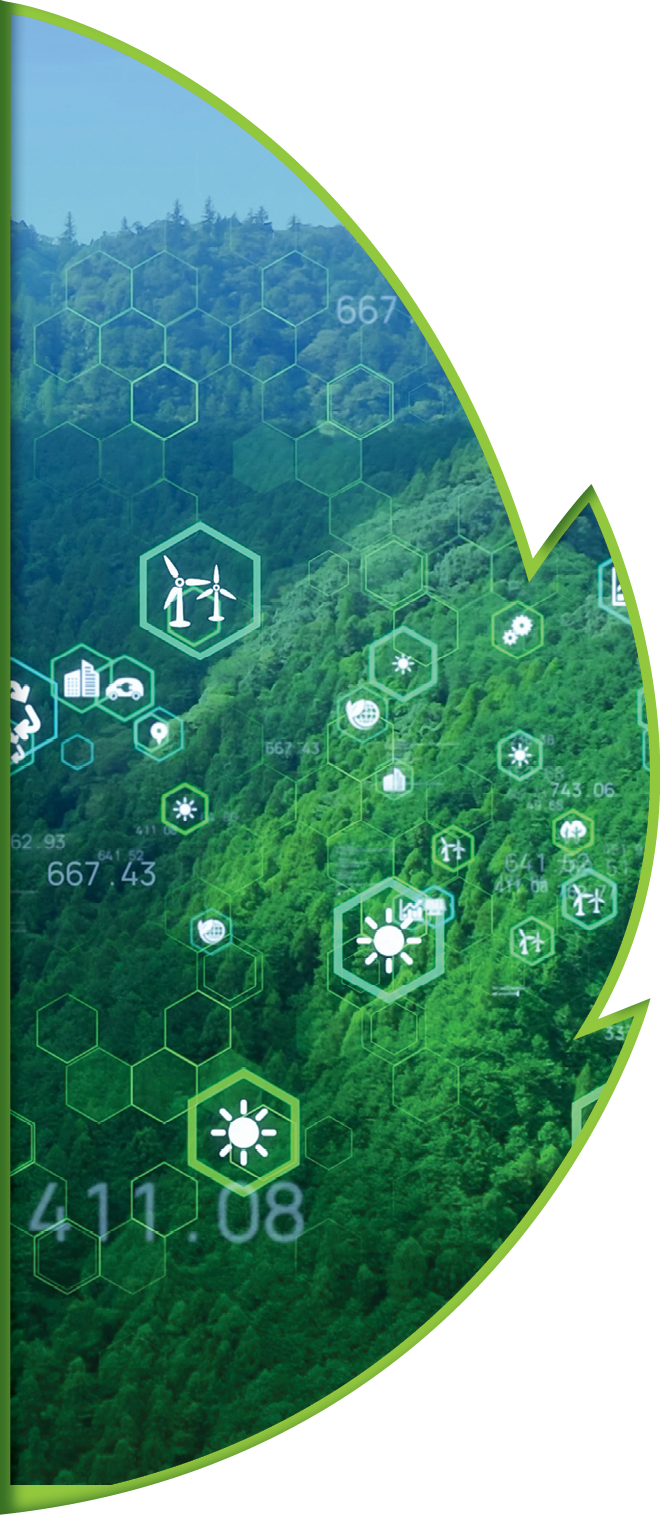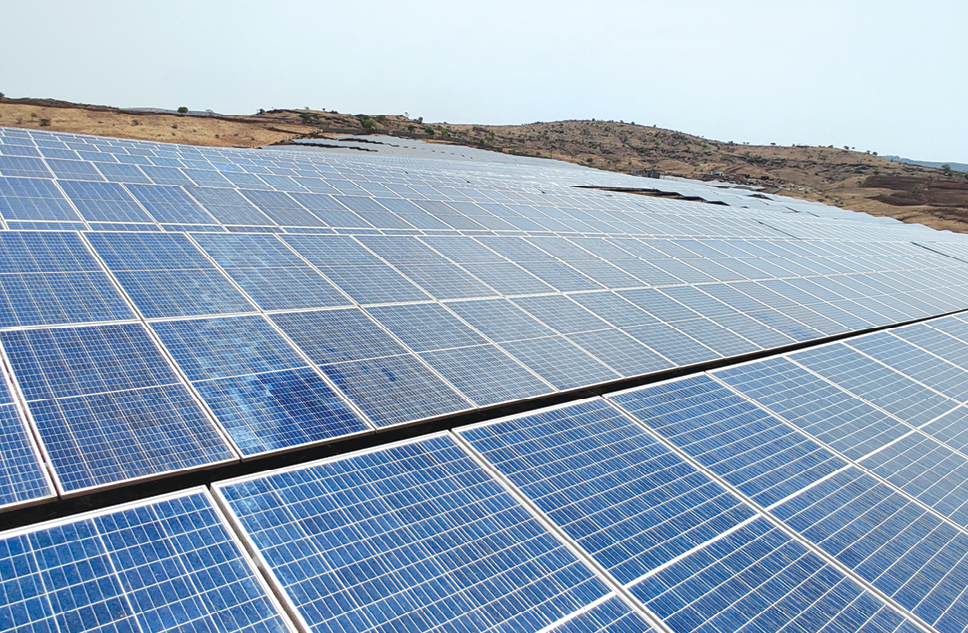
Driving The New By Being Conscious And Through Preservation
Climate change is one of the greatest challenges of our time and we as an organisation are cognizant of the role we have to play in mitigating Green House Gas (GHG) emissions. Energy conservation and optimisation are of the utmost importance to us. However, in addition to adopting various energy efficiency measures, we have significantly increased our uptake of renewable energy as a key aspect of our decarbonisation strategy.
In our journey towards being a global sustainable organisation, we recognise the importance of minimising the negative environmental impact of our operations. To this end, we have adopted new technologies and best practice initiatives so that almost all of our plants have an ISO 14001 Certified Environmental Management System (EMS), making it possible for us to consistently evaluate our performance and progress against our environmental goals. Across the organisation, our efforts are directed by our EHS policy.
Energy and Emissions
Climate change is one of the greatest challenges of our time and we as an organisation are cognizant of the role we have to play in mitigating Green House Gas (GHG) emissions. Energy conservation and optimisation is of the utmost importance to us. However, in addition to adopting various energy efficiency measures, we have significantly increased our uptake of renewable energy as a key aspect of our decarbonisation strategy. In the last year itself, we have installed rooftop solar panels at various plants increasing our renewable energy share from 2% to 10%.
A testament to our commitment to decarbonising our operations, we have also set ourselves an ambitious target of meeting 40% of our energy needs from renewable energy by 2025.
We meet our energy demand through LPG, LNG, Natural Gas, PNG, Biodiesel, Wood, Diesel and Grid Electricity. Since a large share of energy requirements are met through purchased electricity, our renewable energy strategy would enable us to significantly reduce our emissions moving forward.


| Fuel Type | Unit | Consumption FY 2021-22 | GHG Emissions (tCO2e) FY 2021-22 |
|---|---|---|---|
|
Direct Energy Consumption |
|||
|
LPG |
GJ |
18,15,687 |
11,680 |
|
Natural Gas |
GJ |
536 |
02 |
|
PNG |
GJ |
35,616 |
1,680 |
|
Biodiesel |
GJ |
25,132 |
1.79 |
|
Diesel |
GJ |
1,27,884 |
2,808 |
|
Indirect Energy Consumption |
|||
|
Grid Power |
GJ |
4,02,896 |
88,413 |
|
Solar Power |
GJ |
46,342 |
|
Energy Saving Initiatives
| Location | Initiatives | Savings Per Annum (Kwh) |
|---|---|---|
|
Lighting - Chennai |
Provide energy savers in Ac’s to save power |
25,000 |
|
Lighting - Pune |
Fan automation to start & stop with timer/occupancy sensor/RF card |
9000 |
|
Changed V belt to cogged belt for better gripping |
16,250 |
|
|
Old motors changed with IE-3 energy efficient motors |
12,000 |
|
|
Decikent Air dryer replaced with refrigerated air dryer reducing air purge losses 5-7% |
1,12,375 |
|
|
Lighting - Manesar |
Insulation repairing done at injection moulding machines on hooper |
16,589 |
|
In place of existing chillers, provided one 85 TR energy efficient screw chiller with VFD |
75,600 |
|
|
Rinder - Bhadurgarh |
Replacement of AHU from AC |
1,23,529 |
|
Process optimisation of cooling tower |
38,651 |
|
|
Rinder - Hosur |
Energy saving by redesigning the cooling tower pipelines |
52,462 |
|
Thyristor installation instead of SSR |
62,400 |
|
|
Rinder - Pune |
Installation of heater jackets on injection moulding machines |
46,800 |
|
Installation of VFD on base coat ovens |
32,400 |
|
|
Rinder - Sonipat |
Insulation repairing done at injection molding machines on hooper, heaters & ovens |
35,388 |
|
Acoustic DTA & EOU-Manesar |
EOU Auto High Energy Consuming SD7 line converted into Manual Less Energy Consuming SD7 horn assembly line |
62,840 |
|
METL- Manesar |
VFD installation on low pressure compressor |
24,480 |
|
Minda Onkyo - Bawal |
Energy saving by improving power factor at main feeder |
36,500 |
|
Saving by integrating the exhaust blowers |
39,600 |
|
|
MIL - Switch Manesar |
Insulation repairing done in furnaces, hopper & heaters |
48,938 |
|
Provided VFD to save the power |
38,568 |
|
|
MIL - Switch Pantnagar |
Use of PNG in powder coating plant instead of LPG |
71,760 |
| MRPL - Chennai |
11 KW pump replaced by 7.5 KW motor on circulation pump from cooling tower to process |
31,200 |

Water Management
We recognise that water is a scarce resource that needs to be conserved for not only the benefit of enterprise but also the community at large. From our inception, we have been judicious in our use of water, adhering to all local permissible water withdrawal limits in our areas of operation.
We have taken several initiatives across our business to conserve water. We have installed Sewage Treatment Plants (STP) and Effluent Treatment Plants (ETP) in most of our facilities to treat waste water, which can be reused for domestic purposes like gardening.
Moving forward, we intend to implement a digital water management system that would enable us to monitor and optimize water consumption across various processes in our plants.
| Water Withdrawal by Source | Quantity (FY 2021-22) | Unit |
|---|---|---|
|
Groundwater |
3,84,562 |
KL |
|
Municipal Supply Water |
23,774 |
KL |
|
Third Party Water |
2,47,305 |
KL |
Water Minimisation
We firmly believe that waste is just another ‘valuable resource’, which can be reused to yield positive environmental and economic impact. Moreover, we also believe that effective waste management is important for the health of the environment, our employees and surrounding communities. Therefore, we strive to minimise our waste across all waste streams.
We manage all the waste that we generate in compliance with local regulations and by processing it through authorised vendors and recyclers.
| Waste Generated | Quantity (FY 2021-22) | Unit | |
|---|---|---|---|
|
Hazardous Waste |
|||
|
Used Oil |
937 |
Tons |
|
|
Coolant |
892 |
Tons |
|
|
Sludge |
382 |
Tons |
|
|
Oily Socked Clothes |
201 |
Tons |
|
|
Empty Container |
3,337 |
Tons |
|
|
Others |
471 |
Tons |
|
|
MON-HAZARDOUS WASTE |
|||
|
Metal Waste |
1,086 |
Tons |
|
|
Plastic Waste |
4,529 |
Tons |
|
|
STP Sludge |
56,030 |
Tons |
|
|
Others |
2,294 |
Tons |
|